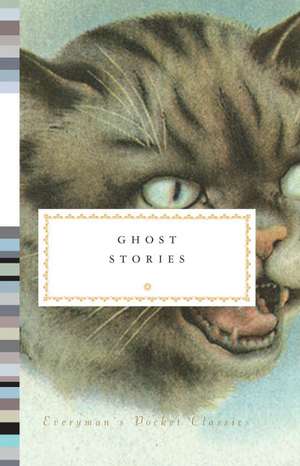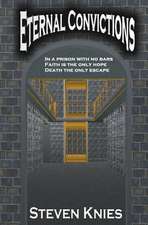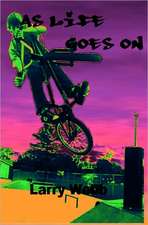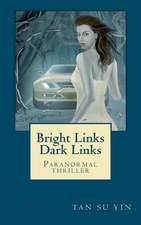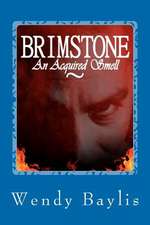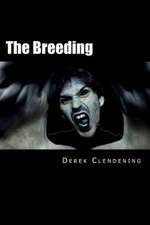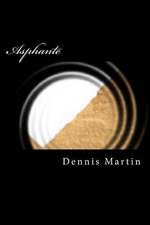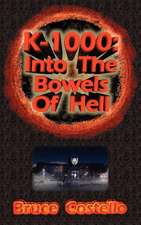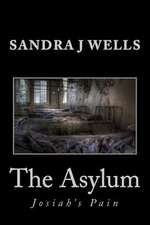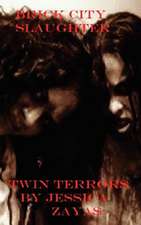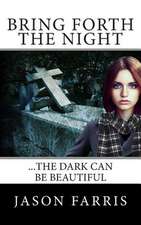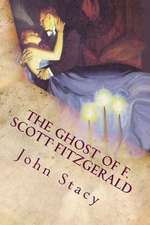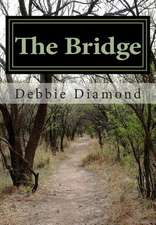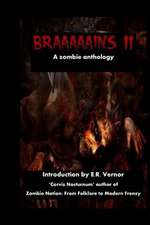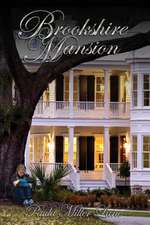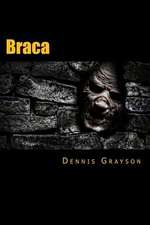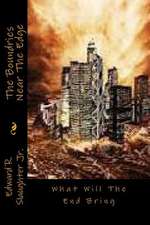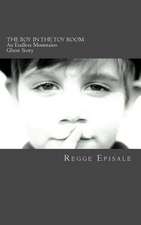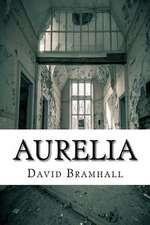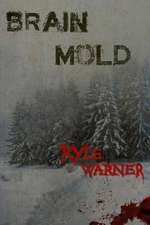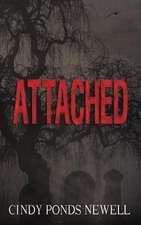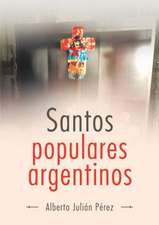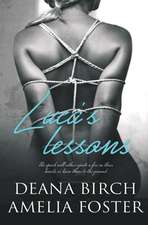Ghost Stories
Editat de Peter Washingtonen Limba Engleză Hardback – 31 aug 2008 – vârsta de la 12 până la 18 ani
The chilling classic stories gathered here offer a remarkable variety of approaches to the theme of haunting. Revenge comes from beyond the grave in Robert Louis Stevenson’s “The Body-Snatcher,” while visions of the dead come between the living in Henry James’s “The Friends of the Friends.” P. G. Wodehouse gives us a farcical take on the haunted house in “Honeysuckle Cottage,” and in L. P. Hartley’s “W.S.,” a writer is fatally stalked by his own aggrieved creation.
Here are ghosts of every stripe and intent in stories from writers as varied as Elizabeth Bowen and Jorge Luis Borges, Eudora Welty and Vladimir Nabokov, Ray Bradbury and Edith Wharton, among others. In the hands of these masters, the ghost story ranges far beyond mere horror to encompass comedy and tragedy, pathos and drama, and even a touch of poetry.
| Toate formatele și edițiile | Preț | Express |
|---|---|---|
| Hardback (2) | 82.07 lei 24-30 zile | +32.41 lei 4-10 zile |
| EVERYMAN – 6 noi 2008 | 82.07 lei 24-30 zile | +32.41 lei 4-10 zile |
| Everyman's Library – 31 aug 2008 | 133.62 lei 3-5 săpt. |
Preț: 133.62 lei
Nou
Puncte Express: 200
Preț estimativ în valută:
25.58€ • 27.79$ • 21.50£
25.58€ • 27.79$ • 21.50£
Carte disponibilă
Livrare economică 31 martie-14 aprilie
Preluare comenzi: 021 569.72.76
Specificații
ISBN-13: 9780307269249
ISBN-10: 0307269248
Pagini: 407
Dimensiuni: 124 x 183 x 30 mm
Greutate: 0.44 kg
Editura: Everyman's Library
ISBN-10: 0307269248
Pagini: 407
Dimensiuni: 124 x 183 x 30 mm
Greutate: 0.44 kg
Editura: Everyman's Library
Notă biografică
Peter Washington is the editor of many of the Everyman's Library Pocket Poets, including Love Poems, and is the author of Madame Blavatsky's Baboon: A History of the Mystics, Mediums, and Misfits Who Brought Spiritualism to America.
Extras
Excerpt from “The Body-Snatcher” by Robert Louis Stevenson
EVERY NIGHT IN the year, four of us sat in the small parlour of the George at Debenham - the undertaker, and the landlord, and Fettes, and myself. Sometimes there would be more; but blow high, blow low, come rain or snow or frost, we four would be each planted in his own particular armchair. Fettes was an old drunken Scotchman, a man of education obviously, and a man of some property, since he lived in idleness. He had come to Debenham years ago, while still young, and by a mere continuance of living had grown to be an adopted townsman. His blue camlet cloak was a local antiquity, like the church-spire. His place in the parlour at the George, his absence from church, his old, crapulous, disreputable vices, were all things of course in Debenham. He had some vague Radical opinions and some fleeting infidelities, which he would now and again set forth and emphasize with tottering slaps upon the table.He drank rum- five glasses regularly every evening; and for the greater portion of his nightly visit to the George sat, with his glass in his right hand, in a state of melancholy alcoholic saturation. We called him the Doctor, for he was supposed to have some special knowledge of medicine, and had been known, upon a pinch, to set a fracture or reduce a dislocation; but beyond these slight particulars, we had no knowledge of his character and antecedents.
One dark winter night - it had struck nine some time before the landlord joined us - there was a sick man in the George, a great neighbouring proprietor suddenly struck down with apoplexy on his way to Parliament; and the great man's still greater London doctor had been telegraphed to his bedside. It was the first time that such a thing had happened in Debenham, for the railway was but newly open, and we were all proportionately moved by the occurrence.
'He's come,' said the landlord, after he had filled and lighted his pipe.
'He?' said I. 'Who? - not the doctor?'
'Himself,' replied our host.
'What is his name?'
'Doctor Macfarlane,' said the landlord.
Fettes was far through his third tumbler, stupidly fuddled, now nodding over, now staring mazily around him; but at the last word he seemed to awaken, and repeated the name 'Macfarlane' twice, quietly enough the first time, but with sudden emotion at the second.
'Yes,' said the landlord, 'that's his name, Doctor Wolfe Macfarlane.'
Fettes became instantly sober; his eyes awoke, his voice became clear, loud, and steady, his language forcible and earnest. We were all startled by the transformation, as if a man had risen from the dead.
'I beg your pardon,' he said, 'I am afraid I have not been paying much attention to your talk. Who is this Wolfe Macfarlane?' And then, when he had heard the landlord out, 'It cannot be, it cannot be,' he added; 'and yet I would like well to see him face to face.'
'Do you know him, Doctor?' asked the undertaker, with a gasp.
'God forbid!' was the reply. 'And yet the name is a strange one; it were too much to fancy two. Tell me, landlord, is he old?'
'Well,' said the host, 'he's not a young man, to be sure, and his hair is white; but he looks younger than you.'
'He is older, though; years older. But,' with a slap upon the table, 'it's the rum you see in my face - rum and sin. This man, perhaps, may have an easy conscience and a good digestion. Conscience! Hear me speak. You would think I was some good, old, decent Christian, would you not? But no, not I; I never canted. Voltaire might have canted if he'd stood in my shoes; but the brains' - with a rattling fillip on his bald head - 'the brains were clear and active, and I saw and made no deductions.'
'If you know this doctor,' I ventured to remark, after a somewhat awful pause, 'I should gather that you do not share the landlord's good opinion.'
Fettes paid no regard to me.
'Yes,' he said, with sudden decision, 'I must see him face to face.'
There was another pause, and then a door was closed rather sharply on the first floor, and a step was heard upon the stair.
'That's the doctor,' cried the landlord. 'Look sharp, and you can catch him.'
It was but two steps from the small parlour to the door of the old George Inn; the wide oak staircase landed almost in the street; there was room for a Turkey rug and nothing more between the threshold and the last round of the descent; but this little space was every evening brilliantly lit up, not only by the light upon the stair and the great signal lamp below the sign, but by the warm radiance of the barroom window. The George thus brightly advertised itself to passers-by in the cold street. Fettes walked steadily to the spot, and we, who were hanging behind, beheld the two men meet, as one of them had phrased it, face to face.
Dr. Macfarlane was alert and vigorous. His white hair set off his pale and placid, although energetic, countenance. He was richly dressed in the finest of broadcloth and the whitest of linen, with a great gold watch-chain, and studs and spectacles of the same precious material. He wore a broad-folded tie, white and speckled with lilac, and he carried on his arm a comfortable driving-coat of fur. There was no doubt but he became his years, breathing, as he did, of wealth and consideration; and it was a surprising contrast to see our parlour sot - bald, dirty, pimpled, and robed in his old camlet cloak - confront him at the bottom of the stairs.
'Macfarlane!' he said somewhat loudly, more like a herald than a friend.
The great doctor pulled up short on the fourth step, as though the familiarity of the address surprised and somewhat shocked his dignity.
'Toddy Macfarlane!' repeated Fettes.
The London man almost staggered. He stared for the swiftest of seconds at the man before him, glanced behind him with a sort of scare, and then in a startled whisper,'Fettes!' he said, 'you!'
'Ay,' said the other, 'me! Did you think I was dead too? We are not so easy shut of our acquaintance.'
'Hush, hush!' exclaimed the doctor. 'Hush, hush! this meeting is so unexpected - I can see you are unmanned. I hardly knew you, I confess, at first; but I am overjoyed - overjoyed to have this opportunity. For the present it must be how-d'ye-do and good-bye in one, for my fly is waiting, and I must not fail the train; but you shall - let me see - yes - you shall give me your address, and you can count on early news of me. We must do something for you, Fettes. I fear you are out at elbows; but we must see to that for auld lang syne, as once we sang at suppers.'
'Money!' cried Fettes; 'money from you! The money that I had from you is lying where I cast it in the rain.'
Dr Macfarlane had talked himself into some measure of superiority and confidence, but the uncommon energy of this refusal cast him back into his first confusion.
A horrible, ugly look came and went across his almost venerable countenance. 'My dear fellow,' he said, 'be it as you please; my last thought is to offend you. I would intrude on none. I will leave you my address, however-'
'I do not wish it - I do not wish to know the roof that shelters you,' interrupted the other. 'I heard your name; I feared it might be you; I wished to know if, after all, there were a God; I know now that there is none. Begone!'
He still stood in the middle of the rug, between the stair and doorway; and the great London physician, in order to escape, would be forced to step to one side. It was plain that he hesitated before the thought of this humiliation. White as he was, there was a dangerous glitter in his spectacles; but while he still paused uncertain, he became aware that the driver of his fly was peering in from the street at this unusual scene and caught a glimpse at the same time of our little body from the parlour, huddled by the corner of the bar. The presence of so many witnesses decided him at once to flee. He crouched together, brushing on the wainscot, and made a dart like a serpent, striking for the door. But his tribulation was not entirely at an end, for even as he was passing Fettes clutched him by the arm and these words came in a whisper, and yet painfully distinct, 'Have you seen it again?'
The great rich London doctor cried out aloud with a sharp, throttling cry; he dashed his questioner across the open space, and, with his hands over his head, fled out of the door like a detected thief. Before it had occurred to one of us to make a movement the fly was already rattling toward the station. The scene was over like a dream, but the dream had left proofs and traces of its passage. Next day the servant found the fine gold spectacles broken on the threshold, and that very night we were all standing breathless by the bar-room window, and Fettes at our side, sober, pale, and resolute in look.
'God protect us, Mr Fettes!' said the landlord, coming first into possession of his customary senses. 'What in the universe is all this? These are strange things you have been saying.'
Fettes turned toward us; he looked us each in succession in the face. 'See if you can hold your tongues,' said he. 'That man Macfarlane is not safe to cross; those that have done so already have repented it too late.'
And then, without so much as finishing his third glass, far less waiting for the other two, he bade us good-bye and went forth, under the lamp of the hotel, into the black night.
EVERY NIGHT IN the year, four of us sat in the small parlour of the George at Debenham - the undertaker, and the landlord, and Fettes, and myself. Sometimes there would be more; but blow high, blow low, come rain or snow or frost, we four would be each planted in his own particular armchair. Fettes was an old drunken Scotchman, a man of education obviously, and a man of some property, since he lived in idleness. He had come to Debenham years ago, while still young, and by a mere continuance of living had grown to be an adopted townsman. His blue camlet cloak was a local antiquity, like the church-spire. His place in the parlour at the George, his absence from church, his old, crapulous, disreputable vices, were all things of course in Debenham. He had some vague Radical opinions and some fleeting infidelities, which he would now and again set forth and emphasize with tottering slaps upon the table.He drank rum- five glasses regularly every evening; and for the greater portion of his nightly visit to the George sat, with his glass in his right hand, in a state of melancholy alcoholic saturation. We called him the Doctor, for he was supposed to have some special knowledge of medicine, and had been known, upon a pinch, to set a fracture or reduce a dislocation; but beyond these slight particulars, we had no knowledge of his character and antecedents.
One dark winter night - it had struck nine some time before the landlord joined us - there was a sick man in the George, a great neighbouring proprietor suddenly struck down with apoplexy on his way to Parliament; and the great man's still greater London doctor had been telegraphed to his bedside. It was the first time that such a thing had happened in Debenham, for the railway was but newly open, and we were all proportionately moved by the occurrence.
'He's come,' said the landlord, after he had filled and lighted his pipe.
'He?' said I. 'Who? - not the doctor?'
'Himself,' replied our host.
'What is his name?'
'Doctor Macfarlane,' said the landlord.
Fettes was far through his third tumbler, stupidly fuddled, now nodding over, now staring mazily around him; but at the last word he seemed to awaken, and repeated the name 'Macfarlane' twice, quietly enough the first time, but with sudden emotion at the second.
'Yes,' said the landlord, 'that's his name, Doctor Wolfe Macfarlane.'
Fettes became instantly sober; his eyes awoke, his voice became clear, loud, and steady, his language forcible and earnest. We were all startled by the transformation, as if a man had risen from the dead.
'I beg your pardon,' he said, 'I am afraid I have not been paying much attention to your talk. Who is this Wolfe Macfarlane?' And then, when he had heard the landlord out, 'It cannot be, it cannot be,' he added; 'and yet I would like well to see him face to face.'
'Do you know him, Doctor?' asked the undertaker, with a gasp.
'God forbid!' was the reply. 'And yet the name is a strange one; it were too much to fancy two. Tell me, landlord, is he old?'
'Well,' said the host, 'he's not a young man, to be sure, and his hair is white; but he looks younger than you.'
'He is older, though; years older. But,' with a slap upon the table, 'it's the rum you see in my face - rum and sin. This man, perhaps, may have an easy conscience and a good digestion. Conscience! Hear me speak. You would think I was some good, old, decent Christian, would you not? But no, not I; I never canted. Voltaire might have canted if he'd stood in my shoes; but the brains' - with a rattling fillip on his bald head - 'the brains were clear and active, and I saw and made no deductions.'
'If you know this doctor,' I ventured to remark, after a somewhat awful pause, 'I should gather that you do not share the landlord's good opinion.'
Fettes paid no regard to me.
'Yes,' he said, with sudden decision, 'I must see him face to face.'
There was another pause, and then a door was closed rather sharply on the first floor, and a step was heard upon the stair.
'That's the doctor,' cried the landlord. 'Look sharp, and you can catch him.'
It was but two steps from the small parlour to the door of the old George Inn; the wide oak staircase landed almost in the street; there was room for a Turkey rug and nothing more between the threshold and the last round of the descent; but this little space was every evening brilliantly lit up, not only by the light upon the stair and the great signal lamp below the sign, but by the warm radiance of the barroom window. The George thus brightly advertised itself to passers-by in the cold street. Fettes walked steadily to the spot, and we, who were hanging behind, beheld the two men meet, as one of them had phrased it, face to face.
Dr. Macfarlane was alert and vigorous. His white hair set off his pale and placid, although energetic, countenance. He was richly dressed in the finest of broadcloth and the whitest of linen, with a great gold watch-chain, and studs and spectacles of the same precious material. He wore a broad-folded tie, white and speckled with lilac, and he carried on his arm a comfortable driving-coat of fur. There was no doubt but he became his years, breathing, as he did, of wealth and consideration; and it was a surprising contrast to see our parlour sot - bald, dirty, pimpled, and robed in his old camlet cloak - confront him at the bottom of the stairs.
'Macfarlane!' he said somewhat loudly, more like a herald than a friend.
The great doctor pulled up short on the fourth step, as though the familiarity of the address surprised and somewhat shocked his dignity.
'Toddy Macfarlane!' repeated Fettes.
The London man almost staggered. He stared for the swiftest of seconds at the man before him, glanced behind him with a sort of scare, and then in a startled whisper,'Fettes!' he said, 'you!'
'Ay,' said the other, 'me! Did you think I was dead too? We are not so easy shut of our acquaintance.'
'Hush, hush!' exclaimed the doctor. 'Hush, hush! this meeting is so unexpected - I can see you are unmanned. I hardly knew you, I confess, at first; but I am overjoyed - overjoyed to have this opportunity. For the present it must be how-d'ye-do and good-bye in one, for my fly is waiting, and I must not fail the train; but you shall - let me see - yes - you shall give me your address, and you can count on early news of me. We must do something for you, Fettes. I fear you are out at elbows; but we must see to that for auld lang syne, as once we sang at suppers.'
'Money!' cried Fettes; 'money from you! The money that I had from you is lying where I cast it in the rain.'
Dr Macfarlane had talked himself into some measure of superiority and confidence, but the uncommon energy of this refusal cast him back into his first confusion.
A horrible, ugly look came and went across his almost venerable countenance. 'My dear fellow,' he said, 'be it as you please; my last thought is to offend you. I would intrude on none. I will leave you my address, however-'
'I do not wish it - I do not wish to know the roof that shelters you,' interrupted the other. 'I heard your name; I feared it might be you; I wished to know if, after all, there were a God; I know now that there is none. Begone!'
He still stood in the middle of the rug, between the stair and doorway; and the great London physician, in order to escape, would be forced to step to one side. It was plain that he hesitated before the thought of this humiliation. White as he was, there was a dangerous glitter in his spectacles; but while he still paused uncertain, he became aware that the driver of his fly was peering in from the street at this unusual scene and caught a glimpse at the same time of our little body from the parlour, huddled by the corner of the bar. The presence of so many witnesses decided him at once to flee. He crouched together, brushing on the wainscot, and made a dart like a serpent, striking for the door. But his tribulation was not entirely at an end, for even as he was passing Fettes clutched him by the arm and these words came in a whisper, and yet painfully distinct, 'Have you seen it again?'
The great rich London doctor cried out aloud with a sharp, throttling cry; he dashed his questioner across the open space, and, with his hands over his head, fled out of the door like a detected thief. Before it had occurred to one of us to make a movement the fly was already rattling toward the station. The scene was over like a dream, but the dream had left proofs and traces of its passage. Next day the servant found the fine gold spectacles broken on the threshold, and that very night we were all standing breathless by the bar-room window, and Fettes at our side, sober, pale, and resolute in look.
'God protect us, Mr Fettes!' said the landlord, coming first into possession of his customary senses. 'What in the universe is all this? These are strange things you have been saying.'
Fettes turned toward us; he looked us each in succession in the face. 'See if you can hold your tongues,' said he. 'That man Macfarlane is not safe to cross; those that have done so already have repented it too late.'
And then, without so much as finishing his third glass, far less waiting for the other two, he bade us good-bye and went forth, under the lamp of the hotel, into the black night.
Cuprins
Robert Louis Stevenson
The Body-Snacher
Guy de Maupassant
The Horla
Henry James
The Friends of Friends
W.W. Jacobs
The Monkey's Paw
M.R. James
'Oh, Whistle, and I'll Come to You, My Lad'
Saki (H.H. Munro)
The Open Window
Katherine Mansfield
The Daughters of the Late Colonel
P.G. Wodehouse
Honeysuckle Cottage
L.P. Hartley
W.S.
Edith Wharton
The Looking Glass
Elizabeth Bowen
The Happy Autumn Fields
Vladimir Nabokov
The Visit to the Museum
Eudora Welty
Clytie
Jorge Luis Borges
The Circular Ruins
Elizabeth Taylor
Poor Girl
Walter de la Mare
The Quincunx
Penelope Lively
Uninvited Ghosts
Alison Lurie
The Highboy
Ray Bradbury
Another Fine Mess
Acknowledgments
The Body-Snacher
Guy de Maupassant
The Horla
Henry James
The Friends of Friends
W.W. Jacobs
The Monkey's Paw
M.R. James
'Oh, Whistle, and I'll Come to You, My Lad'
Saki (H.H. Munro)
The Open Window
Katherine Mansfield
The Daughters of the Late Colonel
P.G. Wodehouse
Honeysuckle Cottage
L.P. Hartley
W.S.
Edith Wharton
The Looking Glass
Elizabeth Bowen
The Happy Autumn Fields
Vladimir Nabokov
The Visit to the Museum
Eudora Welty
Clytie
Jorge Luis Borges
The Circular Ruins
Elizabeth Taylor
Poor Girl
Walter de la Mare
The Quincunx
Penelope Lively
Uninvited Ghosts
Alison Lurie
The Highboy
Ray Bradbury
Another Fine Mess
Acknowledgments
Descriere
The chilling classic ghost stories gathered here offer a remarkable variety of approaches to the theme of haunting. It includes stories by such legendary writers as Robert Louis Stevenson, P.F. Wodehouse, Eudora Welty, Ray Bradbury, and Edith Wharton.
